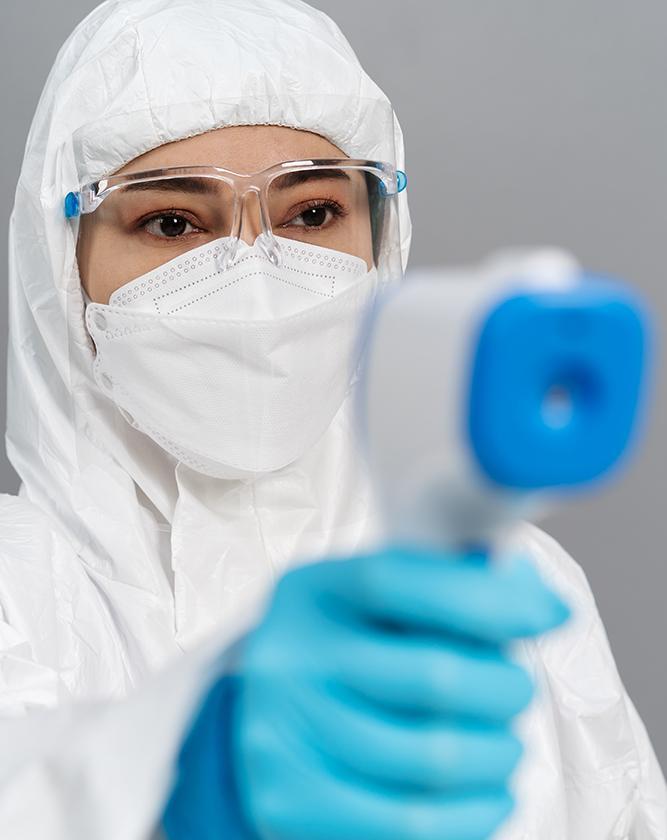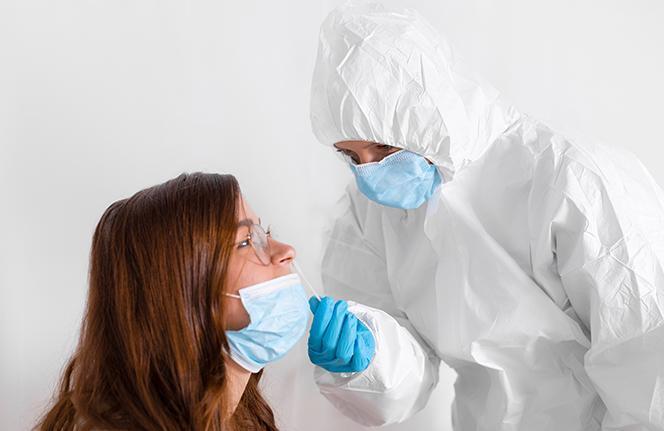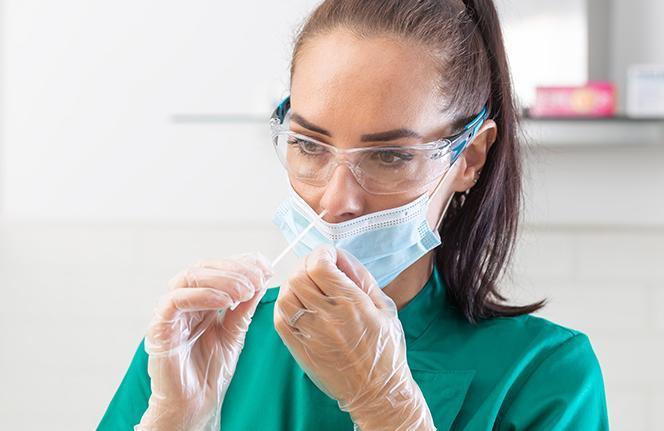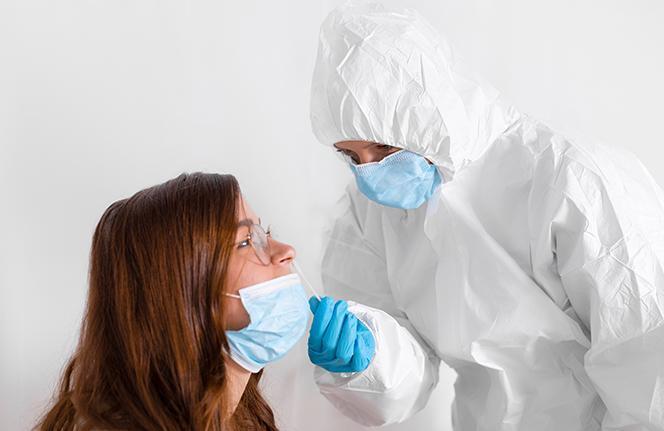Covid
Covid RT PCR Test
- The outbreak of the new coronavirus disease, which was first detected in China in December 2019, is continuing to affect people across the globe. We have observed three waves of this disease in India so far.
- Early and accurate diagnosis of COVID-19 disease caused by the novel coronavirus now called SARS CoV-2 is critical to curbing its spread and improving health outcomes.

Who should get tested for Covid-19 infection
- People who have symptoms of COVID-19.
- Most people who have had close contact (within 6 feet for a total of 15 minutes or more over 24 hours) with someone with confirmed COVID-19.
- Fully vaccinated people with no COVID-19 symptoms do not need to be tested following exposure to someone with COVID-19.
- People who have tested positive for COVID-19 within the past three months and recovered do not need to get tested following exposure as long as they do not develop new symptoms.
- People who have taken part in activities that put them at higher risk for COVID-19 because they cannot distance themselves as needed to avoid exposure, such as travel, attending large social or mass gatherings, or being in crowded or poorly-ventilated indoor settings.
- People asked or referred to get tested by their healthcare provider or state, tribal or territorial health department.
CDC recommends that anyone with any signs or symptoms of COVID-19 get tested, regardless of vaccination status or prior infection. If you get tested because you have symptoms or were potentially exposed to the virus, you should stay away from others pending test results and follow the advice of your health care provider or a public health professional.
Latest ICMR Guidelines
A. In community settings:
- Symptomatic (cough, fever, sore throat, loss of taste and/or smell, breathlessness and/or other respiratory symptoms).
- At-risk contacts of laboratory-confirmed cases. [At-risk contacts are elderly (>60yr) and individuals with comorbidity such as diabetes, hypertension, chronic lung or kidney disease, malignancy, obesity etc.].
- Individuals undertaking international travel (as per country-specific requirements).
- International travelers arriving at Indian airports/seaports/ports of entry according to the laid down guidelines.
B. In Hospital Settings:
- Testing may be undertaken at the discretion of the treating doctor with the following considerations:
-
- No emergency procedures (including surgeries and deliveries) should be delayed for lack of a test.
- Patients should not be referred to other facilities for lack of a testing facility. All arrangements should be made to collect and transfer samples to testing facilities, mapped to the health facility.
- Asymptomatic patients undergoing surgical / non-surgical invasive procedures, including pregnant women in/near labor who are hospitalized for delivery, should not be tested unless warranted or symptoms develop.
- Admitted patients may not be tested more than once a week.
Who should not get tested
for current infection
- Asymptomatic individuals in community settings.
- Contacts of confirmed cases of COVID-19 unless identified as high risk based on age or co[1][1]morbidities.
- Patients who stand discharged as per home isolation guidelines.
- Patients being discharged from a COVID-19 facility as per revised discharge policy.
- Individuals undertaking inter-state domestic travel.
CDC recommends that anyone with any signs or symptoms of COVID-19 get tested, regardless of vaccination status or prior infection. If you get tested because you have symptoms or were potentially exposed to the virus, you should stay away from others and follow the advice of your health care provider or a public health professional.
- Molecular test (RT PCR test)
-

These diagnostic tests are considered the most sensitive for detecting SARS CoV2 infection.
You might take one if you or your doctor think you have COVID-19. You might also be asked to take this type of test if you need to prove to your employer or your college that you are not currently infected before returning to work or campus.
Molecular tests are often called PCR tests, short for a polymerase chain reaction, the lab technique used to detect the virus's genetic material. In most cases, a health care provider will collect nasopharyngeal/oropharyngeal secretions from your nose or throat using a specialized swab. (Some molecular tests now use saliva/nasal secretions, which people may find more comfortable.) Turnaround time varies from minutes to days or longer, depending on whether the sample is analyzed onsite or sent to an outside lab.
- Antigen test
-

This diagnostic test is often called a "rapid test" / point of care test because the turnaround time is much quicker than the PCR test. It's also cheaper to produce. As a result, antigen tests are being used to screen large numbers of people, like at airports, a recent article in the journal Nature points out.
From a patient's point of view, antigen testing works similarly to molecular testing. Your health care provider will swab the back of your nose to collect a sample for testing. But instead of waiting days for your results, an antigen test can produce a result in 15 minutes. If you test positive, it is true positive. Antigen tests are precise. If you have COVID symptoms but test negative, it should be confirmed by the RTPCR test as per ICMR guidelines to rule out a false negative.
- Antibody test
-

This test looks for antibodies to the coronavirus. Antibodies are proteins your immune system produces to fight off a foreign invader, such as a virus. A COVID-19 antibody test cannot diagnose active coronavirus infection. All it tells you is whether you've been infected at some point in the past, even if that occurred months ago. Antibodies do not become detectable until a few days – 5 days to 2 weeks, at least after symptoms have started.
There are no FDA-authorized, at-home antibody tests. You'll have to see a health care professional, who will take a blood sample via a finger prick or a blood draw from a vein in your arm. The vast majority of these tests are performed at a central lab, which can take a couple of days to process. The FDA has approved the point-of-care SARS CoV-2 antibody test, making it possible for doctor's offices, hospitals, urgent care centers, and emergency rooms to get an answer within 15 minutes using blood from a person's fingertip.

